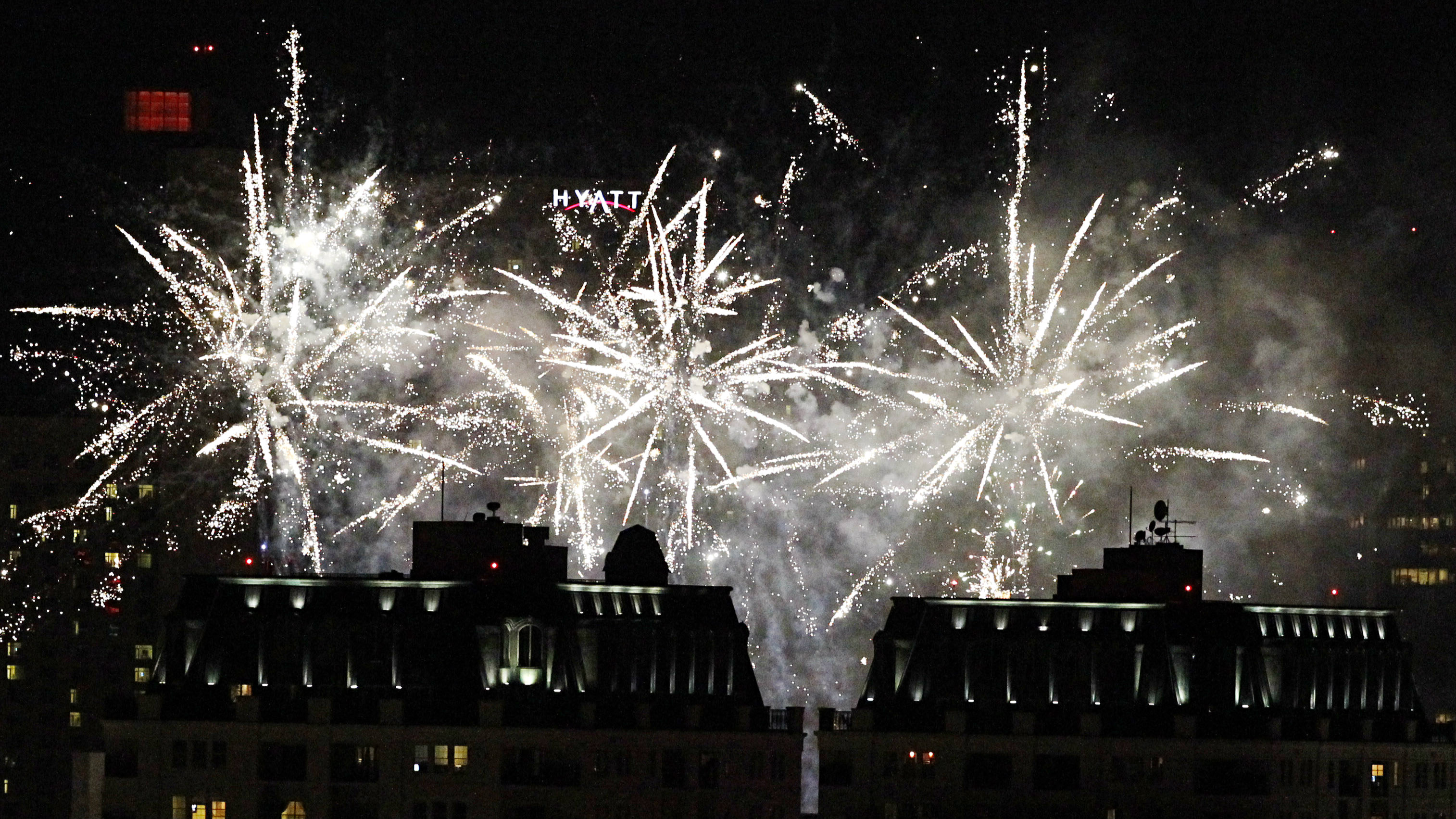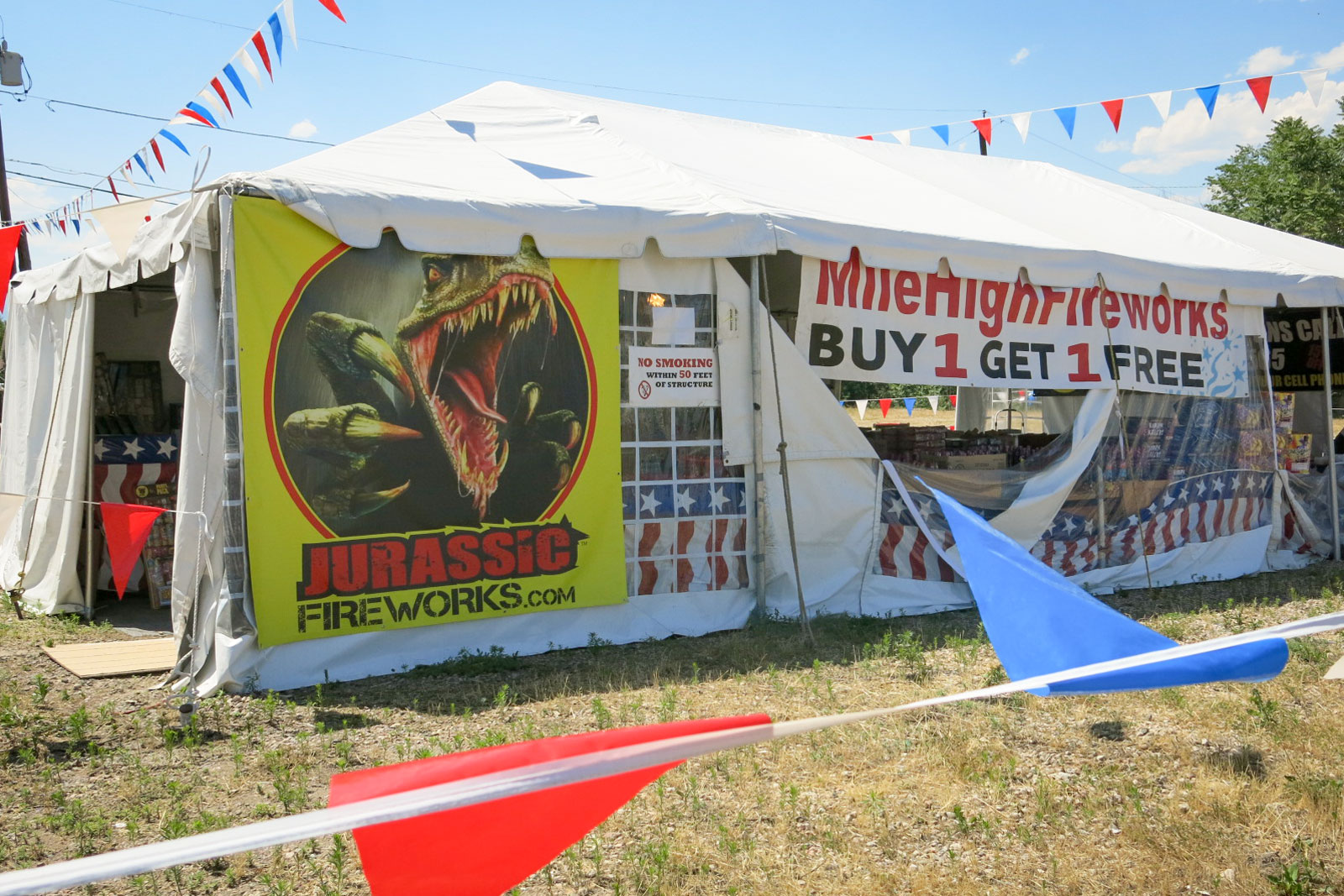

Breckenridge is the latest Colorado town to cancel its traditional July 4 fireworks show due to extreme drought and wildfire danger.
Cancellations are a familiar refrain as hot and dry conditions persist across the West. Just ask Glenwood Springs. For City Manager Debra Figueroa it was “an incredibly tough decision.”
The city was one of the first to make the dramatic announcement during a contentious city council meeting in May. Like many mountain towns, tourism is key, with summer traffic and Independence Day fireworks right at the center. Glenwood’s sister resort towns are getting creative about how they replace fireworks. In Aspen, 50 drones will light up the night sky. Steamboat and Glenwood will both pay for professional laser light and music shows.
A laser show may not have the same gravitas as a sky filled with brilliant exploding rockets, but Figueroa tried to create an equivalent attraction. She hired the same company that lit up California’s Coachella Valley Music and Arts Festival.
It’s up to cities and towns across the state to make individual decision about fire danger. They can ban the use of fireworks, fireworks sales, or cancel city-run fireworks demonstrations. Some cities like Silverton and Fruita have called off fireworks with no replacement in mind.
Fireworks are ILLEGAL in Denver! Be smart!
Used with permission from Mr. @DrewLitton Thanks! pic.twitter.com/ODh2q60U1Z
University of Colorado Boulder geographer and fire researcher Jennifer Balch doesn’t think fireworks are a risk worth taking.
Balch runs Earth Lab, which uses satellite data to study things like how wildfires start. She has found that people started 84 percent of wildfires over a two-decade period between early 1992 and 2012. The Fourth of July was the single biggest day for human-caused wildfire.
“I think we should try to develop some activities that are different from fireworks that can still mark our Independence Day,” she said.
That idea is a non-starter for Frank Elliott, whose family owns Jurassic Fireworks. Surrounded by sparklers, smoke bombs and snappers under his pop-up sales tent Adams County, he said business is down because of fireworks bans in Denver, Arapahoe County, Pueblo and Aurora.
Like many, he had to buy his inventory in 2017 before he knew about 2018’s fire danger. Elliott thinks recent rain on the Front Range should ease firework sales restrictions.
“We’re not selling the stuff that flies in the air… We’re selling little family packs like this that say, ‘emits showers or sparks.’” Elliott said.
He said he thinks people are still illegally buying and selling big fireworks. It’s his contention that the ban only hurts fireworks sellers like his company.
“This to me might be the worst year ever,” Elliott lamented.

Arizona drought conditions are even more severe than southwest Colorado’s. In Flagstaff that means the first canceled fireworks display in more than a decade.
For Fire Marshal Pat Staskey, who made the difficult call, “there a lot of things we look at before we go off the cuff and make that decision about, ‘hey let’s shutdown fireworks.’”
Flagstaff is surrounded by national forests and depends on tourism, too, so Staskey understands the tension. For weeks he’s attended regular briefings to evaluate fire danger, the weather, and the availability of firefighting resources.
“We really don’t want to be on the front page of the trades of the fire service periodicals and magazines going, ‘Oh, a huge wildland fire was caused in Flagstaff that burned so much acreage and homes,” he said. “So we want to keep out of that realm.”
As cities look ahead to their future celebrations, the drones that light up the night sky in Aspen this year could have more explosive company down the road. The Great Lakes Drone Company, the business behind the Aspen’s event, said the light show can work in tandem with fireworks — adding what sales and marketing director Reyna Price called “that extra wow factor to a performance.”
Sometimes even the classic traditions need a little modern pizzazz.









